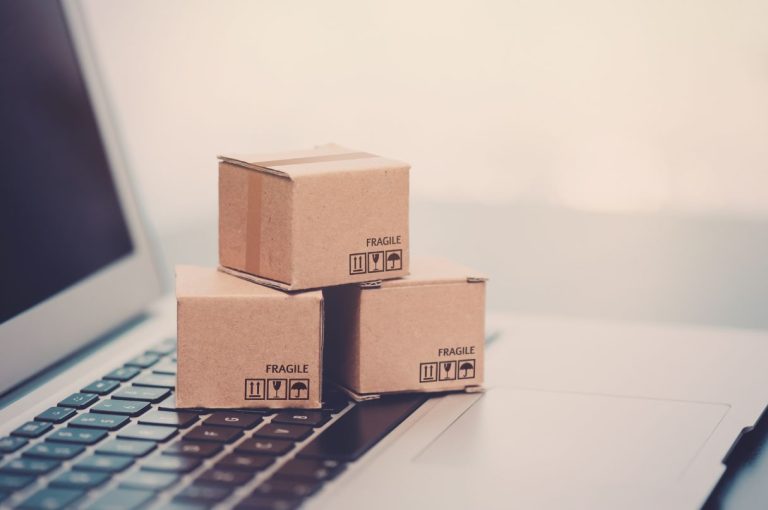O setor de food delivery tem crescido no mundo todo e o Brasil vem acompanhando essa tendência com vigor. Uma pesquisa recente realizada pela Ticket, que entrevistou quase 10 mil pessoas, revelou que 4 em cada 10 brasileiros pedem delivery regularmente — ou seja, 40%. Entre os jovens da Geração Z, com idades entre 15 e 28 anos, esse número sobe para 51%. Mas qual é a estratégia desse setor para continuar crescendo a cada ano? Foi nesse contexto de mercado aquecido que São Paulo recebeu o Delivery Summit 2024, evento realizado pela Woovi, em parceria com WAbiz, que reuniu especialistas e empresários para compartilhar práticas, tecnologias e estratégias que prometem transformar o delivery em uma máquina de vendas.
O evento apresentou tendências e cases de sucesso para quem deseja prosperar em um mercado em rápida evolução. A agenda foi marcada por insights sobre tecnologias emergentes, campanhas sazonais e estratégias de fidelização, com exemplos práticos que mostraram como é possível conquistar e manter clientes em um ambiente cada vez mais competitivo. Com o apoio de marcas como Heineken, Seara, OpenPix, Catupiry, Sr.Caixa e Pietro Fornos, o Delivery Summit inovou em fazer o primeiro evento focado no setor food delivery no Brasil. Segundo a organizadora Woovi, as empresas que investirem em inovação e na experiência do cliente estarão à frente na corrida por um mercado cada vez mais dinâmico e competitivo. De acordo com Rafael Turk, CEO da Woovi, outro ponto que merece atenção de empresários do setor é a “automatização das transações e uma infraestrutura que possibilita agilidade nos processamentos de pagamentos, trazendo diferenciais como eficiência operacional e satisfação do cliente, desde o momento de decisão de compra até a satisfação no pós-vendas”.
Entre os palestrantes, Rafael Abath, fundador da Zapy Pizza, destacou o papel da inovação na construção de negócios bem-sucedidos. Ele compartilhou a experiência de sua empresa ao bater o recorde de entrega em apenas 8 minutos. “Fazer entregas em 40 minutos já não é diferencial. Quem não se adapta, fica para trás”, afirmou Rafael. O modelo de cozinhas compartilhadas é um dos segredos que garante essa eficiência, permitindo otimização de custos e aproveitamento de insumos para diferentes marcas.
Outro destaque foi Valmor Friedrich, CEO da Kadalora Pizzaria, que apresentou sua trajetória de 44 anos no setor de alimentação, marcada pela superação de desafios e pela expansão de seu negócio para 17 unidades. Valmor contou como inovou ao manter sua pizzaria aberta em horários que seus concorrentes não operavam, conquistando assim novos públicos. “Enquanto outras pizzarias fechavam cedo, permanecemos abertos e absorvemos mais clientes”, revelou. Além das pizzarias, Valmor diversificou seus negócios, criando um ecossistema que inclui boutiques de carne e produtos de limpeza, aproveitando sinergias entre os diferentes setores. Sua estratégia não apenas aumentou o faturamento, mas também garantiu uma base de clientes fiéis e uma operação mais robusta.
A importância do marketing estratégico foi amplamente discutida pela equipe da HS Marketing. Com base em funis de conversão otimizados, a empresa destacou que a cada 1.000 visualizações de anúncios, 100 interagem com a marca, 15 realizam compras e cinco se tornam clientes fiéis. O foco do marketing 360º está na redução da dependência de marketplaces como, por exemplo, iFood e UberEats, promovendo campanhas direcionadas para cardápios próprios e fortalecendo a fidelização do cliente. Para Rafael Turk, CEO da Woovi, “a centralização de canais próprios, além de marketplaces, permite que oportunidades sejam exploradas durante a jornada, como análise da recorrência de compra e aplicação de mecanismos de retenção, sem contar a redução de repasses para esses canais”.
A utilização de conteúdo visual atrativo, como o ‘foodporn’, e parcerias com influenciadores locais foram apontadas como essenciais para engajar o público e converter seguidores em clientes. A HS Marketing também apresentou cases de sucesso, como o crescimento de 40% no faturamento do Vila Anália, impulsionado por estratégias de comunidade, e o aumento de 50% nas vendas do Chapéu de Couro por meio de campanhas urgentes e personalizadas.
Jussara Calife, diretora de Trade Marketing para os canais ON e OFF do grupo Heineken, por sua vez, abordou a importância de adaptar cardápios de acordo com ocasiões específicas, como churrascos e festas, para aproveitar as oportunidades em feriados e finais de semana. Ela enfatizou que a personalização do atendimento, aliada ao uso de bots e listas organizadas pelo WhatsApp, pode aumentar a eficiência operacional e melhorar a experiência do cliente. “A criação de combos atrativos, pensados para diferentes ocasiões, é essencial para se destacar em um mercado tão competitivo”, explicou Jussara, reforçando que parcerias sólidas com fornecedores também são fundamentais para o sucesso.
As tendências presentes no setor de food service incluem a importância de processos que proporcionem aos consumidores experiências personalizadas com estratégias de marketing digital como interação de qualidade, gestão de relacionamento entre lojas e clientes, atendimento ágil, além da parceria com marketplaces convencionais. Durante o caminho do consumidor, desde o checkout até a tomada de decisão de compra, assim como possível satisfação com o produto, fidelização e recomendação da marca, é importante facilitar os processos, simplificar as etapas e priorizar o cliente.
Além dos cases e insights práticos, o Delivery Summit 2024 trouxe dados importantes sobre o crescimento do mercado de delivery. O setor tem registrado aumentos consistentes, especialmente em segmentos premium e em datas sazonais, mostrando que a aposta em campanhas estratégicas e fidelização pode garantir uma receita sustentável. O evento foi marcado pelo engajamento dos participantes, que saíram com um plano claro para aplicar as estratégias discutidas e transformar seus negócios. Como concluiu Valmor Friedrich: “Prosperar é sobre preparar pessoas e criar um negócio que faça sentido a longo prazo”.










